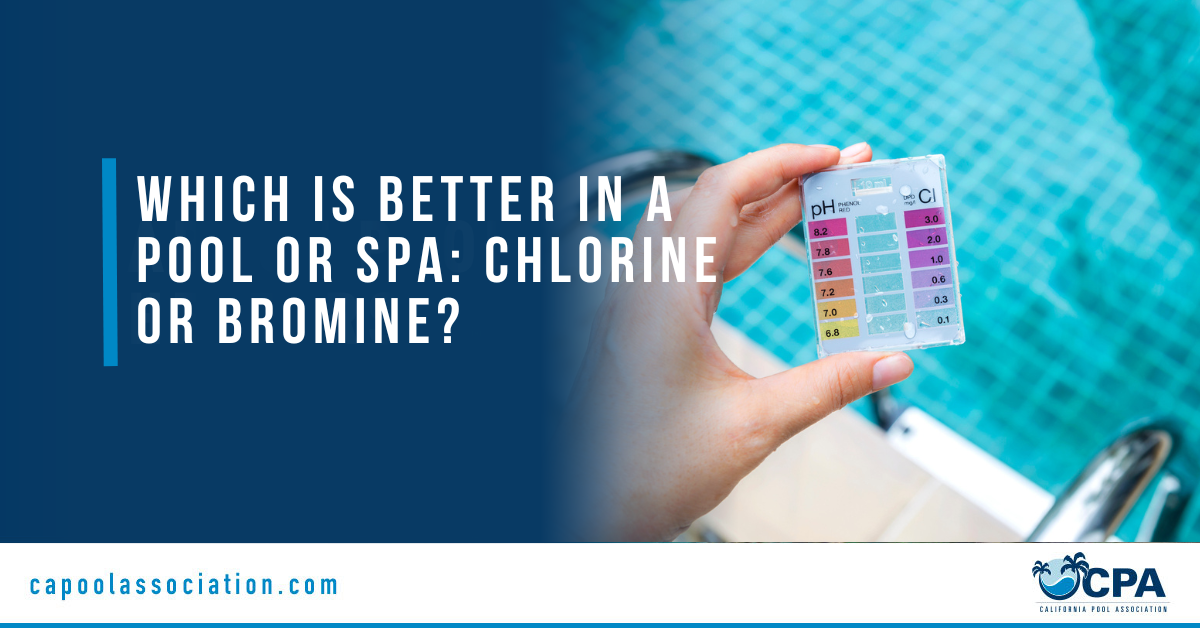
Bromine and chlorine are the two most commonly used sanitizers in pools and spas worldwide. Both the chemical components chlorine and bromine have the same function, which is to eliminate microorganisms from pool and spa water. The ways that these chemicals clean, respond to temperature, and interact with skin, however, vary.
Chlorine dissolves quickly enough to start disinfecting the water. Chlorine tablets or sticks can be used in in-line or offline chlorine feeders, floating dispensers, or directly in the skimmer basket, however this is not advised. Pre-dissolved granular chlorine can easily be poured around the pool from a bucket of water.
Bromine tablets dissolve best when water is poured over them via a bromine feeder. Bromine generates chemicals known as bromamides when it disinfects water, however unlike chloramines, they remain active and continue to disinfect while producing no odor or burning the eyes. Bromamides can also be reactivated and restored to full power with a shocking treatment, whereas chloramines are simply burned off and removed from the water.
Both bromine and chlorine are halogens and belong to the same chemical family. They are both disinfectants, algicides, and oxidizers, but there are some significant distinctions in how they work.
Chlorine kills pollutants faster but for a shorter length of time since it evaporates faster. Bromine eliminates contaminants more slowly but for a longer period of time; also, due to its low pH, it can assist in keeping water chemistry more balanced, requiring less chemical adjustment.
Bromine is more stable than chlorine, particularly in warm water, and is therefore more typically used in spas, whereas chlorine is more commonly used in pools. The exception is ultraviolet (UV) light, which destroys both compounds, although bromine degrades faster.
It’s important to check how much of each chemical is required to do the same job. When it comes to the number of chemicals you utilize, a basic rule is to strive for the higher end of the spectrum.
One of the primary distinctions between bromine and chlorine is price, with bromine costing up to twice as much as chlorine. This is a significant reason why as a pool service provider your clients would prefer chlorine to bromine, because pools require a lot more of the chemical than spas.
Both chlorine and bromine are completely safe for human use when used in accordance with the manufacturer’s recommendations. Depending on how sensitive your clients are to particular substances, side effects may occur.
For your clients with delicate skin, eyes, or respiratory problems like asthma, chlorine can be harsh. Because it is less abrasive, smells less of chemicals, and is less prone to provoke asthma problems, bromine can be a great substitute. However, compared to chlorine, bromine can leave a residual odor that is more difficult to remove.
Each has advantages and disadvantages, but how they work for your client’s pool or spa will be determined by their needs and tastes. Remember that if they are allergic to chlorine, bromine is not a good substitute because it is in the same chemical family.
The California Pool Association (CPA) is a trade organization founded for independent pool service, repair and maintenance business owners. The association works on behalf of its members to provide affordable general liability insurance, wholesale pricing on equipment and supplies, and a vast professional network. Contact us today and find out how you can benefit from membership in the California Pool Association.